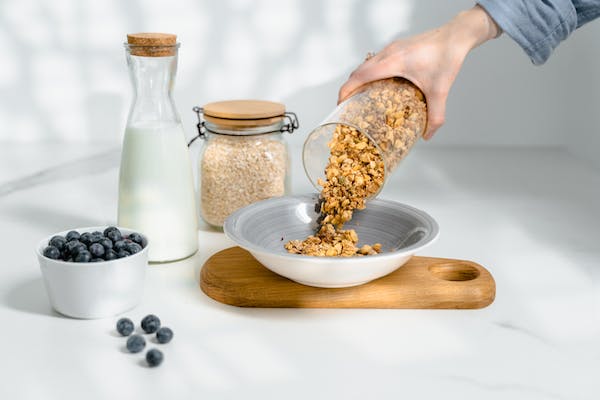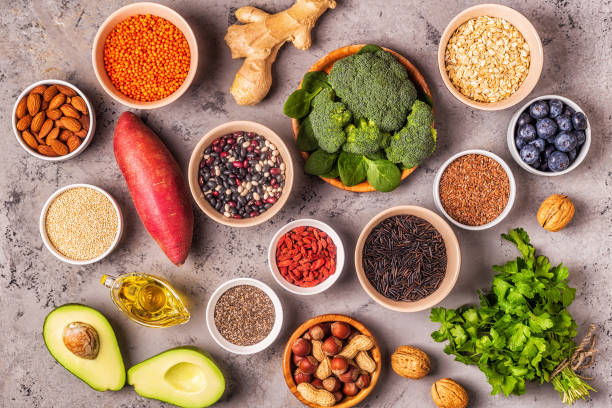-
Added sugars can have a significant impact on our health, leading to weight gain, increased risk of chronic diseases, dental problems, impaired cognitive function, mood swings, liver disease, and a higher risk of certain cancers.
-
By understanding these effects, we can make informed choices to safeguard our well-being.

Added sugars, will be sugars and syrups that are added to food sources or refreshments during handling or planning. They are not normally present in that frame of mind, as organic products, vegetables, or dairy items.
Going from sweet refreshments to processed food varieties, these sugars are available in different structures and amounts.
A lot of anything can make you sick, moreover an excess of added sugar can have various adverse consequences for your wellbeing.
These incorporate weight gain and obesity, type 2 diabetes, gut health, cardiovascular disease, and mental degradation.
We will investigate the impacts of added sugars on your wellbeing, their sources, and the steps you can take to make better decisions.
What are the Sources of Added Sugar?
Sugary Beverages (40%)
Sugary beverages are the essential wellspring of added sugars in many individuals’ weight control plans.
Soda pops, organic product juices, caffeinated drinks, and enhanced waters are stacked with added sugars. These beverages not only contribute to excessive sugar intake but also lack essential nutrients, leading to empty calorie consumption.
Snacks and Sweets (31%)
Another significant source of added sugar consumption is snacks and desserts. Although tempting and sometimes you can’t resist them, many sweet delicacies including candies, cookies, cakes, pastries, ice cream, and others, can include a lot of added sugar.
Although they could give momentary pleasure, these indulgences might have a negative impact on long-term health.
Condiments and Sauces (4%)
Surprisingly, condiments and sauces also contribute to your added sugar intake. Ketchup, barbecue sauce, salad dressings, and other condiments often contain hidden sugars.
These seemingly innocent additions to your meals can contribute to your overall sugar intake without you even realizing it. Check food labels and choose lower-sugar alternatives or make your own homemade versions.
Cereal and Breakfast Foods (5%)
Significant levels of added sugars may equally be found in a lot of flavored oatmeal, granola bars, and morning cereals.
With these sugar-heavy breakfast alternatives, you can experience a rise in blood sugar that will make you need more sweet meals all day. Opt for whole-grain cereals and low-sugar alternatives for a healthier breakfast choice.
Baked Goods and Mixes (4%)
Baked goods, for example, biscuits, bread, flapjack blends, and baked goods, frequently contain added sugars to improve taste and surface. While these treats can be appreciated with some restraint, it’s vital to know about the sugar content.
Consider making homemade baked goods using natural sweeteners like mashed bananas or applesauce instead.
Dairy Desserts (3%)
Ice cream, flavored yogurts, and pudding cups are popular dairy desserts that contain added sugars.
Opting for plain yogurt and adding fresh fruits or natural sweeteners like honey can be a healthier alternative. Look for sugar-free or low-sugar options when choosing dairy desserts.
Alcoholic Beverages (2%)
Cocktails like mixed drinks, blended beverages, and new wines can add to your additional sugar consumption.
Be aware of your liquor utilization and pick lower-sugar choices like dry wines, light lagers, or spirits blended in with soft drink water rather than sweet blenders. Control is critical to getting a charge out of cocktails while limiting the effect on your wellbeing.
10 Effects of Added Sugars on Your Health
Because added sugars are so prevalent in our modern eating habits, it becomes essential to understand the consequences they might have on our health.
1. Weight Gain and Obesity
Frequent utilization of added sugars, for example, high-fructose corn syrup, earthy colored sugar, and natural sweetener, is high in calories and can prompt weight gain and corpulence.
Heftiness has been connected to a high intake of sugar-improved drinks, as indicated by studies. Most of the these sugars, found in sugary beverages and processed snacks, increase the risk of sugar intake, sugar consumption, and sugar and obesity.
2. Greater Chance of Type 2 Diabetes
A high-sugar diet is closely linked to an increased risk of developing type 2 diabetes, particularly if it comes from sources like corn syrup, dextrose, and fructose. Sugar and diabetes, sickness, and sugar consumption can all result from a regular diet of sweet foods and drinks.
3. Impaired Gut Health
Added sugars, such as fruit nectars and honey, can disturb the balance of beneficial bacteria in the stomach, resulting in a microbiota imbalance. Sugar and sickness, sugar and obesity, and sugar consumption may all be affected by this imbalance.
4. Cardiovascular Disease
Added sugars, such as fruit nectars and glucose, have been linked to an increased risk of cardiovascular disease. High sugar intake can raise circulatory strain, increment fatty oil levels, and advance aggravation, adding to sugar and coronary illness.
5. Mood Changes and Mental Health Problems
Consumption of added sugars, such as raw sugar and fruit nectars, has been related to mood swings, irritation, and an increased risk of mental health concerns including melancholy and anxiety. These effects are due to excessive sugar intake’s fast variations in blood sugar levels.
6. Reduced Nutritional Intake
Sugary foods, such as packaged snacks and baked pastries, frequently lack important nutrients. When people consume an excessive amount of sugary foods and beverages, they may substitute nutrient-rich diets, resulting in vitamin, mineral, and other nutritional deficits.
7. Dental Problems
Sugar, including sucrose and maple syrup, is a primary contributor to tooth decay. Bacteria in the mouth feed on sugar, creating acids that dissolve tooth enamel and lead to cavities, featuring the effect of included sugars on dental well-being.
8. Increased Risk of Certain Cancers
According to several research, eating a lot of sugar raises your chance of developing some malignancies, such as pancreatic, colorectal, and breast cancer. Excessive sugar consumption, including maltose and molasses, can promote sugar and cancer, highlighting the potential risks.
9. Negative Impact on Cognitive Function
Research shows that an eating regimen high in added sugars, like lactose and malt syrup, may weaken mental capability and increment the risk of mental deterioration. The effects of sugar and cognitive decline have been attributed to the rapid fluctuations in blood sugar levels caused by high sugar intake.
10. Increased Risk of Liver Disease
Excess sugar intake, particularly in the form of fructose found in fruit nectars and high-fructose corn syrup, can contribute to non-alcoholic fatty liver disease (NAFLD). NAFLD is described by the amassing of fat in the liver, which can advance to additional extreme circumstances like liver fibrosis and cirrhosis.
Tips to reduce your intake of added sugars
Consider the following tips to limit your intake of added sugars:
-
Examine food labels
-
Limit your intake of sugary beverages.
-
Make everything from scratch.
-
Educate yourself on the benefits of mindful eating.
-
Keep hydrated.
-
Make a plan for your meals and snacks.
-
Choose natural sweetness.
-
Seek support.





